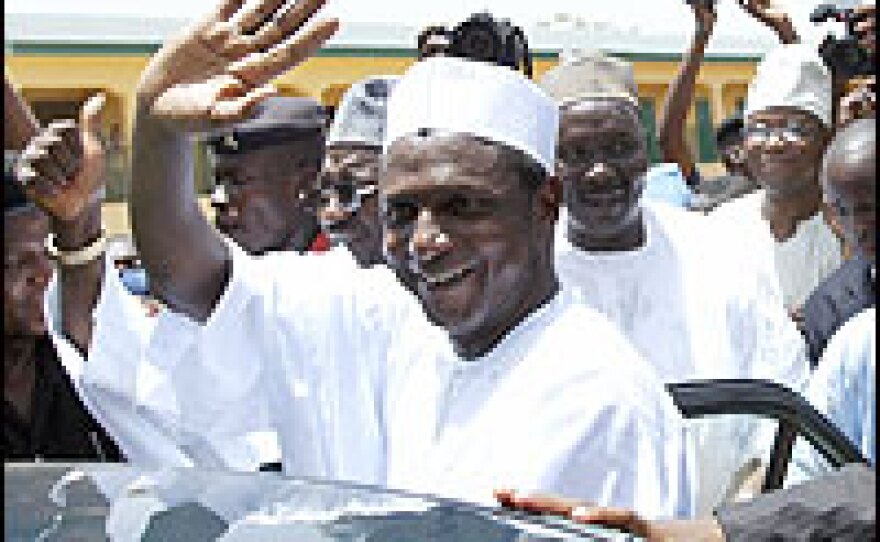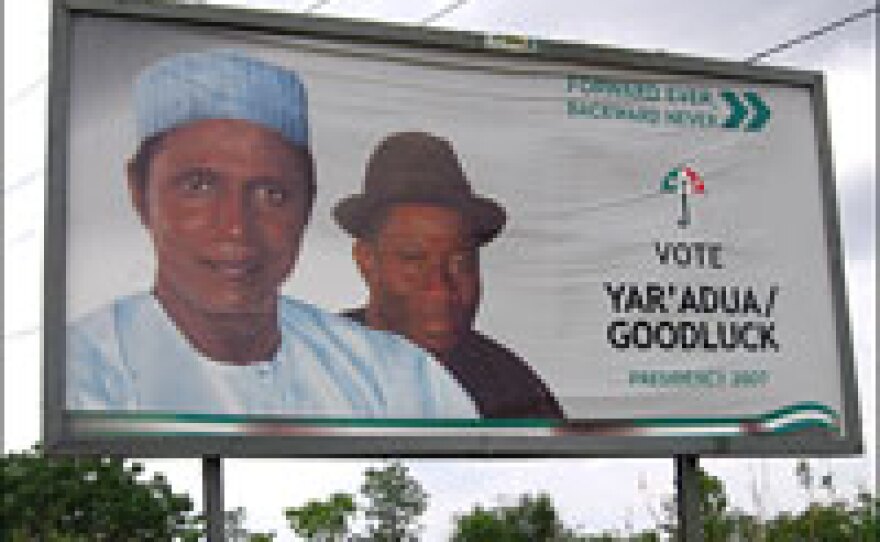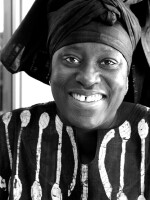
Several candidates are speaking out in protest amid concerns that Nigeria's presidential election Saturday was flawed.
Initial results, which came in Sunday night, gave an early lead to the governing party's candidate, Umaru Yar'Adua.
Already the two main opposition candidates, outgoing Vice President Atiku Abubakar, and former military leader Muhammadu Buhari, have indicated that they want the vote scrapped.
Balloting was held Saturday after a two-hour delay, but polling stations in some parts of the country took many hours longer to get up and running. There were reports of violence in some areas.
Atiku and Buhari have deemed the poll deeply flawed and have called for a new election.
Nigeria's leading election monitoring outfit, Transition Monitoring Group, has said the same. Innocent Chukwuma, chairman of the group that sent out 10,000 observers across the nation, said it was impossible to "use the result from half the country to announce a new president," because voting was delayed for hours and did not happen at all in a number of areas.
The U.S.-based monitoring group International Republican Institute (IRI) also said the election in Africa's most populous nation of 140 million people fell below acceptable standards and that the system had failed the Nigerian people.
Buhari, considered the leading opposition presidential candidate, had run against President Olusegun Obasanjo in the 2003 election. He said he would not accept the results of Saturday's ballot and called on parliament to impeach the outgoing president. Buhari also threatened to call his supporters into the streets if the governing party claimed victory.
Atiku described it as "the worst election ever in Nigeria." He said the government had "no alternative than to cancel the election altogether. … In fact, I have already rejected these elections."
There was even criticism from within Obasanjo's ranks. Senate President Ken Nnamani, the third most senior government official, said widespread irregularities would leave a "legacy of hatred and a crisis of legitimacy for the winner."
The presidential election vote in Africa's number one crude oil producing country, and the world's seventh largest exporter, was supposed to usher in a new era. This was to be the first democratic transition in the country's history since independence 47 years ago.
Nigerians were eager to see one elected civilian president peacefully handing power over to another duly-elected leader after decades of military rule. But it looks as if the West African nation's latest, disputed experiment with democracy may end up with a legal challenge in court.
A late start on Election Day was caused by the last-minute printing of fresh ballots to include the name of Atiku, Nigeria's outgoing vice president. Atiku has for the past year been locked in a political feud with Obasanjo. He stood as an opposition Action Congress (AC) presidential candidate in this election.
Last week, Nigeria's Supreme Court overruled a decision by the country's Independent National Electoral Commission (INEC) to disqualify Atiku from the race. The vice president was facing corruption charges that the INEC said disqualified his candidacy. The decision left just 48 hours to print 65 million new presidential ballots including Atiku's name in South Africa. The ballots had to be flown to Nigeria and distributed to more than 100,000 polling stations across the country, amid Nigeria's crumbling infrastructure.
After the presidential vote, Nigeria's Election Chairman Maurice Iwu said the INEC deserved to give itself a huge pat on the back. "We had an emergency and we responded to the emergency the best we can," Iwu said. "I don't know any other country in the world which would have done it better. We were able to print 65 million ballot papers in three days, had them flown into this country and distributed for an election. It is a tremendous effort. Nigeria should be praised for it."
But many Nigerians feel it is much too early for Iwu to congratulate the INEC. They argue that all the fuss and bother, and delay in distributing ballots, might have been avoided in the first place had the INEC done its homework. INEC argued that the corruption charges Atiku faced automatically excluded him from running and, so, left his name off the ballot. Some say the electoral commission was pandering to political pressure from President Obasanjo to keep Atiku from running.
Atiku and Obasanjo have been at loggerheads since the vice president opposed moves to extend the president's tenure past the constitutional two-term limit, breaking ranks with the governing People's Democratic Party (PDP). What came to be known as the "third term" bid failed after Nigeria's Senate threw out the ruling party's proposal to amend the constitution.
As a result, Obasanjo would be forced to bow out of office after the elections this year. The president was reportedly furious, and he and his thwarted supporters labeled the vice president a political traitor.
Atiku claims he has since become the target of a witch hunt by Obasanjo and his presidential entourage. Observers say the president tried every possible maneuver to exclude Atiku from the presidential race. The vice president says the corruption allegations he is facing are trumped up, politically-motivated and engineered by Obasanjo.
The contention between Obasanjo and Atiku has poisoned the political waters leading up to Saturday's presidential vote and the National Assembly elections, as well as state government polls held earlier this month. Balloting for the earlier elections was marred by violence which reportedly left 50 dead.
Copyright 2022 NPR. To see more, visit https://www.npr.org. 9(MDAzMjM2NDYzMDEyMzc1Njk5NjAxNzY3OQ001))







